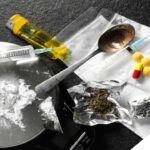Introduction
The Drug and Cosmetic Act sets strict rules to protect public health. It prohibits the sale and manufacture of substandard or unsafe drugs and cosmetics. This law ensures that only quality-tested products reach the market. The rules apply to all manufacturers, sellers, and distributors from a notified date set by the State Government.
What Does The Drugs And Cosmetics Act Say About Manufacture Of Drugs?
The law strictly bans the manufacture, sale, and distribution of certain substandard drugs and cosmetics. From a date notified by the State Government in the Official Gazette, no person can manufacture, sell, stock, or distribute any drug or cosmetic that fails to meet prescribed standards. This includes products that are misbranded, adulterated, spurious, or unsafe for use.
Patent or proprietary medicines must display the true formula and quantity of active ingredients on the label. It also bans drugs that falsely claim to prevent, cure, or treat diseases. Cosmetics containing harmful ingredients are strictly prohibited. Selling or distributing imported or locally made drugs or cosmetics in violation of the law is also not allowed.
Additionally, no drug or cosmetic can be sold or distributed without a valid license. However, the law allows small quantities of drugs to be made for testing or analysis under specific conditions. The Central Government may also permit, with conditions, the sale or distribution of certain non-standard drugs through official notification.
Harsh Mariwala vs. Pramod Kumar (May 5, 2025)
In this important ruling, a court addressed allegations under Section 17C(c) of the Drugs & Cosmetics Act regarding a misbranded cosmetic. The complainant had accused the product of false labeling. However, the court found no evidence from a government analyst indicating that the product violated quality or labeling standards. It emphasized that criminal liability for misbranding requires proof of false labeling or deceptive intent, which was entirely missing here. The manufacturer had complied fully with licencing and disclosure rules, and the court dismissed all charges.
Conclusion
This law plays a key role in ensuring drug and cosmetic safety. It prevents the circulation of harmful, misbranded, or fake products. By enforcing licensing and quality checks, the Act protects consumers from health risks. Compliance with these provisions is essential for legal and ethical business practices in the pharmaceutical and cosmetic industries.








